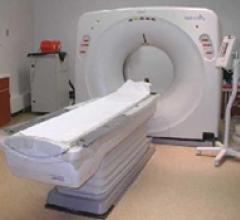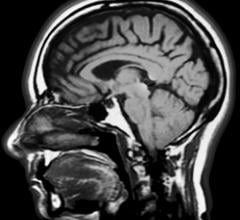July 14, 2011 — Boston Scientific Corporation has completed patient enrollment in the ASTI post-market clinical follow-up study evaluating its Adapt Monorail carotid stent system in combination with its FilterWire EZ embolic protection system for treatment of carotid artery disease in patients at high risk for carotid surgery.
July 14, 2011 – Endosense, a Swiss medical technology company, has announced completion of the first patient case utilizing prototype software that integrates the contact-force data provided by Endosense’s TactiCath force-sensing ablation catheter with Siemens Healthcare’s electrophysiology solutions.
July 14, 2011 — The U.S. Food and Drug Administration (FDA) has conditionally approved the protocol for SYMPLICITY HTN-3, the U.S. clinical trial of renal denervation with the Symplicity catheter system for the treatment of resistant hypertension (high blood pressure in the presence of three or more medications). Patient enrollment in the landmark study is expected to start soon.
Cardiac PET/CT represents a major advancement in cardiovascular diagnostics, offering significant clinical and ...
July 13, 2011 – InfraReDx Inc. announced enrollment of the first patient in its Phase 2 clinical trial, CANARY (Coronary Assessment by Near-infrared [NIR] of Atherosclerotic Rupture-prone Yellow). CANARY is designed to test the hypothesis that NIR-guided use of an embolic protection device (EPD), or filter, during percutaneous coronary intervention (PCI) can reduce the rate of peri-procedural heart attacks in patients identified as having high-risk lipid core plaques (HR-LCPs). InfraReDx’s LipiScan IVUS System is the only multimodality coronary imaging device approved in both the United States and Europe. It is in routine clinical use to detect the LCPs known to complicate stenting and suspected to cause most heart attacks.
July 13, 2011 – Many children and teens suffering from tachycardia, or rapid heart rate, have relied on medication to regulate their heart rhythms and control symptoms such as fatigue, dizziness and fainting spells. However, doctors at the Akron Children's Hospital Arrhythmia Center have made great strides in curing tachycardia with minimally invasive procedures.
July 13, 2011 – The TandemHeart circulatory support system has been granted expanded reimbursement coverage by NHIC Corp., the medicare administrative contractor (MAC) serving over 1.3 million beneficiaries and over 53,000 healthcare providers in the Northeast region of the United States.
SPONSORED CONTENT — Studycast is a comprehensive imaging workflow system that allows healthcare professionals to work ...
July 13, 2011 – Based on its recent analysis of the medical imaging market, Siemens Healthcare was given the 2011 North American Frost & Sullivan Award for New Product Innovation. Siemens' Biograph mMR is the first scanner capable of simultaneously acquiring whole-body positron emission tomography (PET) and magnetic resonance imaging (MRI) data.
July 12, 2011 – To streamline diagnosis and enable greater overall exam efficiency, Toshiba America Medical Systems Inc. has announced U.S. Food and Drug Administration (FDA) approval of VirtualExplorer Version 3.1, a software upgrade package for Toshiba Magnetic Resonance (MR) VirtualExplorer workstations. The software provides enhanced post-processing functionality, and the new cardiac package includes MR flow analysis, which allows clinicians to measure flow and velocity when imaging the heart.
July 12, 2011– A heart valve developer that was spun-off out of Cleveland Clinic to develop a lifetime heart valve replacement technology platform featuring exchangeable bioprosthetic leaflets has received $3.5 million in equity investment from CryoLife Inc.
Providing exceptional cardiovascular care for patients to achieve the best possible outcomes is the number one goal for ...
July 12, 2011 – The Society of Cardiovascular Computed Tomography (SCCT) has published the SCCT Guidelines on Radiation Dose and Dose-Optimization Strategies in Cardiovascular CT document, which will be printed in the July/August special Radiation Focus issue of the Journal of Cardiovascular Computed Tomography. This guideline document reviews available data and provides recommendations regarding interpretation of radiation dose indices and predictors of risk, appropriate use of scanner acquisition modes and settings, development of algorithms for dose optimization and establishment of procedures for dose monitoring.
July 12, 2011 – The Interlock-35 Fibered IDC Occlusion System has been launched in the United States and Europe. Earlier this year, the system, manufactured by Boston Scientific, received clearance from the U.S. Food and Drug Administration (FDA) and CE mark approval for obstructing or reducing blood flow in the peripheral vasculature during embolization procedures.
July 7, 2011 – The National Aeronautics and Space Administration (NASA)’s Ames Research Center and The Midura Laboratory selected ImageIQ to assist in their study of space flight-induced vascular alterations in the lower leg. ImageIQ will provide customized image acquisition and analysis for a vascular research study aboard NASA's final mission of the shuttle Atlantis. scheduled for July 8. The company provides imaging analytics software engineering and visualization services for research, medical device and pharmaceutical organizations.
Cardiac positron emission tomography (PET) is growing in popularity among cardiologists because it provides the ability ...
July 5, 2011 — Janssen Pharmaceuticals Inc. announced that the U.S. Food and Drug Administration (FDA) has approved Xarelto (rivaroxaban tablets), a novel, once-daily, oral anticoagulant for the prevention (prophylaxis) of deep vein thrombosis (DVT) which may lead to a pulmonary embolism (PE) in people undergoing knee or hip replacement surgery.
July 5, 2011 — ECRI Institute, an independent nonprofit that researches the best approaches to improving patient care, and the Health Care Improvement Foundation, an independent nonprofit corporation with a multi-dimensional focus on healthcare safety, announced the launch of a new Partnership for Patient Care regional collaborative focused on improving computed tomography (CT) radiation safety. Jointly funded by Philadelphia-area hospitals and Independence Blue Cross, this collaborative will engage hospitals and imaging centers in Philadelphia and surrounding counties in a 12-month project aimed at strengthening patient safety specific to CT imaging.
July 5, 2011 – A statement was issued by Peter W. Carmel, M.D., the president of the American Medical Association (AMA), regarding cuts to Medicare payments for diagnostic imaging.

 July 14, 2011
July 14, 2011
















